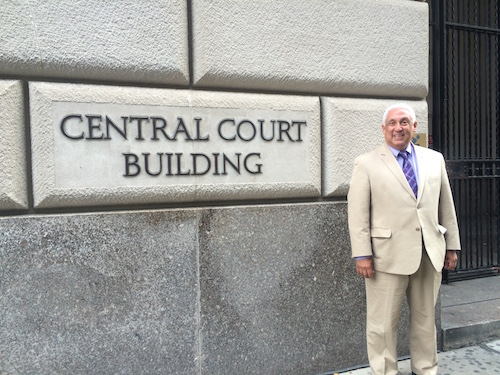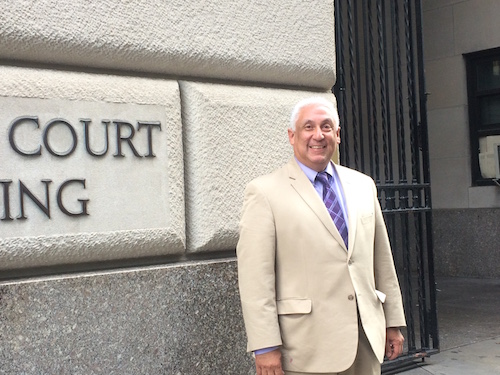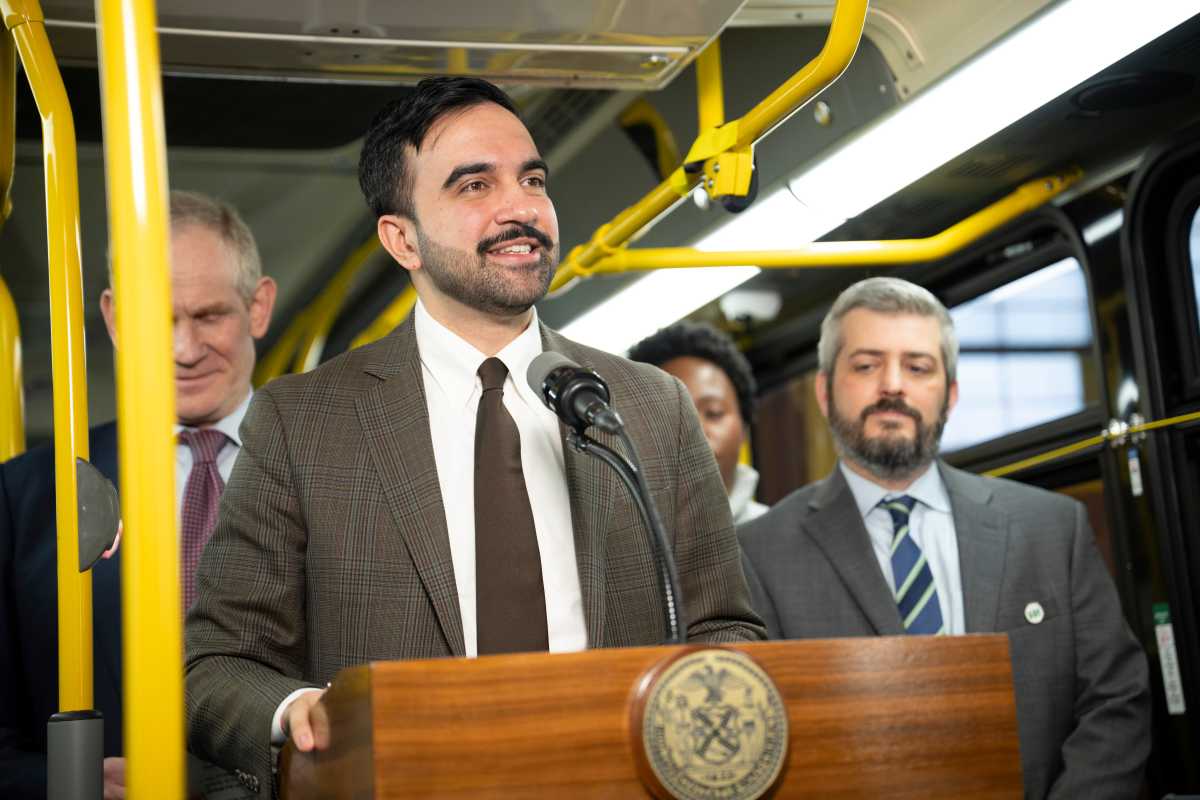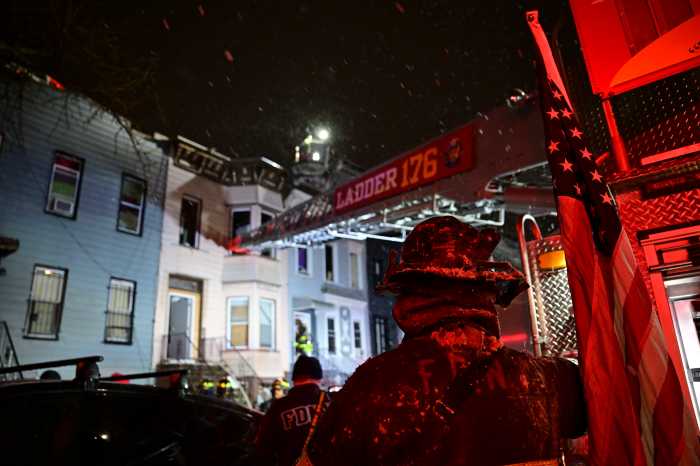I walked into the downtown Brooklyn Court Building, with its marbled columns and steel black bars, expecting to meet a judge with the same grandeur and confidence as the building he has worked in for the past decade, but instead was welcomed by a very down-to-earth fellow Brooklynite, the Honorable Frederick C. Arriaga, who is up for re-election on Sept. 12.
In his chambers at 120 Schermerhorn Street in the heart of Downtown Brooklyn, with its green velvet rugs and big open window, I soon learned that like many Brooklynites, Arriaga is a member of an immigrant family. His parents immigrated from Colombia, and he was born in Chicago, the youngest of three children, who always knew he wanted to become a lawyer and make a positive transformation in everyday people’s lives.
This dream came to fruition when Judge Arriaga move to Brooklyn in 1989 to attend Brooklyn Law School, from which he earned his J.D. in 1992.
“My interest as lawyer was always to do public interest work so I got a position at South Brooklyn Legal Services (Brooklyn Legal Services),” said Arriaga, recalling his early legal work providing free legal services to low-income individuals for cases involving housing, access to high-quality education, health care, family stability, and income and economic security amongst other areas.
After being elected to the Kings County Civil Court bench in 2008, Arriaga was assigned to criminal court, where this background working for residents from low-income communities came in handy.
“Criminal court for the most part deals with issues related to low-income people. When I worked in legal services I worked primarily with the women who are having the housing problems or the government benefit problems, but many of them were either married or had a significant other who had criminal justice contacts. I found and realized that my background in legal services would be very useful here,” said Arriaga.

In 2013, Arriaga was designated as an acting-justice of the Brooklyn Supreme Court which led him to his current role as the Screening Treatment & Enhancement Part (STEP) Program judge or STEP judge. STEP is a special courtroom in the Brooklyn Criminal Court for first time felony offenders arrested who face felony drug charges and who also abuse drugs. Individuals are given the choice to either join the drug treatment program or face jail or probation. The program aims to reduce recidivism and help keep first time offenders out of jail and off of drugs with a court mandated drug treatment program that includes regular court appearances and supervision.
“If you complete the program, for a first time offender this [STEP] is a great thing because you leave with a clean record, and for people who already have a criminal record or have been a drug addict for 20 or 30 years, they are going to finally be able to make a change in their lives,” said Arriaga.
“A lot of what I do is motivate. And that takes two forms, one is commending people and acknowledging and rewarding people for making the right choices. And then for the people who are making the wrong choices, we have to hold them accountable for it,” added Arriaga.
The experienced judge takes his job very seriously on the bench and wants to continue his work as a civil court judge so that he can continue bringing fairness to Brooklynites in the courtroom.
“When you’re in a criminal proceeding as a judge you’re basically dealing with somebody’s liberty. That’s a huge responsibility that you have to take very seriously. You have to consider thoughtfully and you have to apply the law in an impartial and fair manner. Objective justice is a fundamental component of being a judge,” said Arriaga.
Arriaga said it is the nature of the court system that someone is going to leave the courtroom feeling like they won and someone is going to leave the courtroom feeling like they lost, but if a judge does his job correctly all litigants should leave the courtroom feeling that they at least had their day in court and were treated fairly.
“Judges are human beings, we live in the community, we have lives. Being able to connect with people in a personal way is important, ” said Arriaga.
The 10-year veteran of the bench is looking to continue his transformational work as a judge in the daily lives of Brooklynites.
“I feel like there is still a lot of work to do, and having an experienced judge is important. My skills are that much stronger than when I first came in and I can only get stronger. Right now I get tremendous satisfaction from presiding over this [STEP]. For me, criminal court is a place that is generally about negative outcomes where in my part, we really have the potential for positive outcomes,” said Arriaga.
Arriaga even offers words of wisdom as people leave his courtroom, a sort of good luck farewell, “I wish you the best of luck and I never want to see you again–because if I don’t see you again it means that you’ve moved on and you’re achieving and striving for the goals that you have.”










